Luxury, fashion and consumer goods
Boosting and protecting consumer brands
Consumer goods companies, luxury brands, and fashion houses alike build strong relationships with their clients, thriving over repeated consumption cycles on an international scale. Success in this industry relies on great reputations and effective delivery, but threats online put trust, revenue, and consumer wellbeing at risk.
Top priorities
Brand value
Reputation and trust
Ecommerce revenues
Criminals develop new tactics to trick, extort, and exploit brands for their own gain by the minute. With customer safety, brand integrity, and the company’s survival on the line, the stakes couldn’t be higher.

Over 80% of consumers stop shopping at a business immediately after a breach.

Counterfeiting costs goods industries, including fashion and luxuries, over $600 billion every year.

Of the cyberattack victims in the luxury, fashion, and goods industries, half faced extortion.
Threats to the industries
Ecommerce helps goods producers thrive, and economists project global expansion to $8.5 trillion a year by 2025- enough to draw attention from digital scammers. Large clientbases in the consumer goods industry attract scammers, while high margins in the luxury and fashion sectors tempt counterfeiters. Firms therefore require robust tools to fight hijacking, counterfeiting, and phishing attacks online.
Websites connect brands with consumers, but running a domain is no mean feat..
Consumer goods companies, luxury brands, and fashion firms all face similar threats, particularly in new and expanding markets. When websites lack management and security, they suffer expensive hacks and losses.
From undermining profits, to endangering kids, counterfeits wreak havoc on brands and consumers alike.
When counterfeiters thrive, ecommerce diffusion cuts into a market share, funds criminals, and capsizes customer experience. Unprotected brands face bad reviews, falling revenues, and criminal expansion.
Phishers strike during moments of transition, expansion, and communication, turning innovation into disasters. For luxury labels and reliable consumer goods brands, it’s not just money on the line: it’s also customer PII (personally identifiable information).
Hackers profit from consumer data, breaching everything from card details to sexual orientation information for their own gain. Data leaks jeopardize livelihoods and decimate brand reputation.
Fashion, luxury, and consumer goods goals
As companies expand across ecommerce platforms, their unique industry priorities require specialized technical goals. Achieve the following objectives and deliver the goods for your consumer brand
with the EBRAND suite.
Hackers exploit dedicated consumerbases and rapid ecommerce cycles in consumer industries for goods, luxuries, and fashion, hijacking domains and hacking DNS servers. These tactics redirect would-be shoppers, steal cash and data, and undermine brands. Well-equipped organizations tackle these hacks with DNSSEC, registry locks, and domain security services.
Strategic website ownership helps brands capitalize on markets across different regions, launch new products, and make the most of M&As. With website monitoring and efficient registration tactics, you’ll identify gaps in your portfolio and ensure your traffic heads straight to your pages.
Maintaining a consistent online presence helps brands deliver familiarity, reassurance, and convenience to their customers. However, consumer businesses from everyday goods to luxuries rely on complex, convoluted domain organization. Consolidating your registry, DNS, and management helps streamline and optimize your digital assets.
Legislators enforce tight compliance over digital security, particularly for customer-centric industries like fashion brands. However, the quantity of evolving technical assets, resources, and certificates makes it hard to keep up. With EBRAND, decision-makers receive expert guidance and a single source of truth for their digital compliance.
Counterfeiters persist across accounts, platforms, and regions, scamming consumers and then disappearing. To protect their brands, and their customers, companies harness automated takedown solutions, scraping and weaponizing ecommerce channels and removing the threat.
Counterfeits aren’t the only brand risk that fashion houses and luxury brands must tackle. Rogue actors also infringe on trademarks, copyrights, patents, designs, copy, imagery, and any other asset they can get their hands on. Stamping out infringements with Online Brand Protection platforms helps consumer brands enforce their IP.
The grey market exploits consumer brands, illegally distributing goods to evade regulations, undercut margins, and profit from regional price points. Companies deploy solutions like Online Brand Protection to control distribution, analyzing global consumption and authorizing legitimate resellers.
Knowledge is power, and market intelligence helps brands in the consumer goods, fashion, and luxury sectors capitalize on demand and meet customer needs. Analytical tools help firms anticipate trends, launch new products, and celebrate their success.
Phishing undermines the bedrock of successful brands: customer trust. Eliminating phishing emails at the server, before they reach consumer inboxes, reinforces this bedrock, protecting customers and brands alike. Well-protected brands deploy Digital Risk Protection tools to combat phishing at the source.
Sales and marketing fails when fraudsters hijack revenue with fake stores and listings online. These scams jeopardize brands and their customers by breaching valuable data and spreading malware in your name. Using Digital Risk Protection, legitimate organizations hunt for fake websites and take them down.
On the dark web, cybercriminals dish out phish kits, plot against brand weaknesses, and hawk stolen data to the highest bidder. Dark web analysis thereby supports threat interception and breach resolution, delivering the digital security necessary to protect consumer brands.
Finding effective solutions
EBRAND delivers three complementary digital services for tackling your ecommerce risks inand enabling your team to conquer their objectives.
Maximize your security against DDoS attacks, website hijacking, and domain encroachment with EBRAND’s Corporate Domain Management platform.
By equipping yourself with the correct tools to secure your websites, you’ll renew and expand your IP, while tackling malicious actors over 1,800+ extensions. Expert registrars deliver the 24/7 support you need to reinforce your assets.inform your team.
Take matters into your own hands with Online Brand Protection. Empower your team with the proper platform for searching, flagging, and taking down counterfeiters using EBRAND’s ARGOS solution. Once you tackle counterfeiters and other brand risks, you enforce your rights online.
ARGOS delivers teams of IP lawyers and data analysts to boost and protect your brand across marketplaces, webstores, websites, social networks, and darknet channels.
Stop these risks at the source with Digital Risk Protection, to protect your staff, customers, and margins. Take control of digital risks, and discover which assets are under attack.
With EBRAND’s XRAY platform, you’ll scour the internet for potential threats and intercept them before they cost your company. With a threat take-down success rate of 99.8% and blocklisting in a matter of seconds, XRAY tools keep your team protected.
FAQs for fashion, luxury, and consumer goods brands
Luxury brands and fashion labels thrive on strong reputations and recognisable designs. Counterfeiters turn these strengths into vulnerabilities, exploiting branded features to undercut businesses with fakes online. As international supply lines connect executives, designers, manufacturers, distributers, and consumers around the world, vast counterfeiting networks manipulate brands, evade authorities, and undercut legitimate revenue streams.
EBRAND’s legal team deliver some must-see insights on counterfeiting in the luxury industry, and how to tackle it, right here in this linked deep-dive.
Organizations of all shapes and sizes fall for phishing attacks, and AI-powered innovations make them tougher than ever to tackle. However, you can tackle them. While evolving technology poses arms phishing attackers with new threats, it also delivers opportunities to protect yourself and your consumers.
Monitoring suspicious domains with active mail servers helps you identify where phishing attacks originate. By flagging and eliminating these domains, you stop attacks at the source. On the other hand, email security and authentication tools like DMARC and BIMI bolster your own infrastructure, while differentiating legitimate sends from their suspicious counterparts.
Learning more about the phishing sources, tactics, and solutions equips your consumer brand to manage existing threats and intercept developing risks, ensuring you’re best placed to lead your business forward.
If you want a free risk evaluation, our team of experts are more than happy to pencil you in:
Online Brand Protection, Digital Risk Protection, and Corporate Domain Management all unlock unique benefits for consumer brands, no matter the industry. Your ideal solution depends on your companies objectives, and the risks you face. Learning more about these risk helps you solve them, and EBRAND will be happy to help at every step of the way.
Simply put, the answer is as such: proactive management and protection costs less than the finances required for buying back infringing domains from third parties, or taking down unlicensed web stores illegally shipping your wares.

